A: The truth is, we don't want clients who have to be talked into working with us. We do monthly free critiques as a service, but most of our clients come to us via word of mouth. As a result, the clients we do work with have specific goals in mind. They want to get published traditionally and haven't had any luck on their own. Or they want to self-publish but they don't feel their work is ready. They want to make it better and learn how to do this themselves in the future.
We're both ethically against the constant spamming that we all have to deal with. We feel it lessens the quality of services. You know what we do. We're good at it. That either works for you or it doesn't. We see no value in filling up your inbox with 'helpful' marketing materials.

 RSS Feed
RSS Feed
